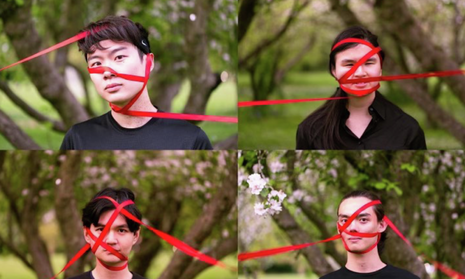
As an “unapologetically authentic reflection of Singapore’s common history, people, culture and way of life”, The Chair explores the nuance of Singaporean behaviours and relationships. The present, begins director Xander Pang,“traces the key transitions in a Singaporean family’s ancestry, and observes the evolution of a bloodline from rough immigrant labourers to educated businessmen and women.” Continuing, “While the story may not be overtly familiar to audiences,” Xander’s aim for the production is “to give people an insight into a culture and narrative that is unique, authentic and real.”
“[The show is an] unapologetically authentic reflection of Singapore’s common history, people, culture and way of life”
Xander desires to “showcase a slice of life from somewhere far away”, to convey “that life continues to exist in many different ways in many different places.” Emphasising how a lot “work the script does for us in representing this family’s lineage and story”, Xander, nevertheless, is conscious that this “does not and cannot represent every Singaporean’s story, so [he] does not try to do that.” In his need to make sure The Chair is a sensible portrayal of the dynamics of a Singaporean household and doesn’t caricature them, Xander “wanted to focus on making the characters feel real and authentic to allow the family, and their story, to reflect that similarity.”
In order to wholly seize such familial and behavioural nuance, Xander asserts that they “worked with the script in a way that allowed for the intonations and language to flow and change naturally throughout the rehearsal process.” Working with a workforce of principally Singaporean actors, Xander highlighted that your entire course of has been extremely dialogical—he would “discuss the language and mannerisms of the characters with the cast, and adapt it in a way that [they] felt best reflected the Singaporean feeling.” Touchingly, Xander claimed that certainly one of his predominant goals for the present was to “make a Singaporean audience proud”, and because of this “always kept a Singaporean audience in mind” throughout the production.
“One of [the show’s] main objectives is for it to make a Singaporean audience proud”
Another spotlight for Xander has additionally been “hearing the Singaporean accent again.” He explains: “The humour and tone that comes along with our language has been missing from [his] life for the longest time,” so having the ability to “work with actors that are well versed in it has been heartwarming.” However, this has additionally posed a problem. Xander emphasised: “The biggest challenge in putting this play together was ensuring that the production stayed true to its Singaporean roots.”
Recognising that it “can be tempting, with foreign productions, to adapt the piece to better suit local audiences,” Xander wished “not only to commit to the original content, but take that further and really embrace the Singaporean nature of the show.” Xander additionally hopes that “people can find humour and drama in a story from a culture that is quite different to their own.” He additionally believes: “Audiences will feel like they are taking a peek into the lives of a very real, very distant group of people, in a way that embraces itself.”
“[The show is] a way to spectate and immerse themselves in a lifestyle and people that are unfamiliar”
Cian Sacker Ooi, who performs Guan Hoe and Jonathan Jr. says that what drew him to the production was the chance to “give people the chance to really understand the history this deceptively young country has.” For the position, Cian has “tried to draw upon the microcosmic feelings [they] have experienced which mirror the much more significant and intense feelings” current within the play. For instance, Cian shares that “While [they] may not have gone through war, [Cian] was a firefighter in Singapore, and those are memories and experiences that I hope others don’t have to see—in the same way that Jonathan Jr. hopes the generations after his own will never have to experience war.”
Jasmin Thien, who performs Mrs Lim and Evelyn discusses how “getting back in touch with where [they] first came from was probably the first and most important thing I had to do to embody my characters.” Jasmin shares that they “have lost a lot of [their] cultural heritage since coming to the UK,” and is hopeful that this play will give audiences a small glimpse into “what makes the Southeast Asian Chinese diaspora special, and that they will go away feeling that they have learnt a little about who we are as a people.”
New HTML Container
Xander believes individuals ought to see this present “as a way to spectate and immerse themselves in a lifestyle and people that are unfamiliar.” As an perception into the shared historical past of the nation, Xander describes watching The Chair as “like going on holiday and seeing a new culture through the eyes of its locals.”
The Chair is displaying within the Corpus Playroom at 9:30pm from tenth — 14th May.
Varsity is the unbiased newspaper for the University of Cambridge, established in its present kind in 1947. In order to take care of our editorial independence, our print newspaper and information web site receives no funding from the University of Cambridge or its constituent Colleges.
We are due to this fact virtually completely reliant on promoting for funding and we count on to have a troublesome few months and years forward.
In spite of this example, we’re going to take a look at ingenious methods to have a look at serving our readership with digital content material and naturally in print too!
Therefore we’re asking our readers, if they need, to make a donation from as little as £1, to assist with our working prices. Many thanks, we hope you may assist!
